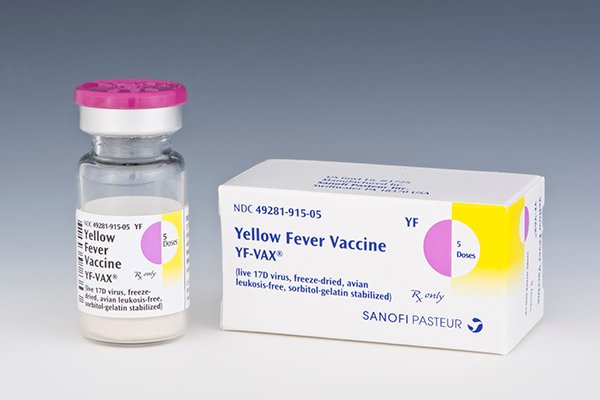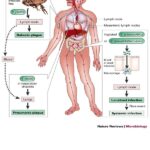Yellow fever is a life-threatening viral hemorrhagic disease transmitted by infected mosquitoes, primarily Aedes and Haemagogus species. Endemic to parts of Africa and South America, yellow fever can lead to severe symptoms including jaundice, organ failure, and death. As no specific antiviral treatment exists, yellow fever vaccination remains the most effective preventive measure.
The World Health Organization (WHO) and Centers for Disease Control and Prevention (CDC) mandate yellow fever immunization for travelers entering or exiting countries within endemic zones. The vaccine provides long-lasting immunity and is a key component in preventing international outbreaks.

Understanding the Yellow Fever Vaccine: Composition and Mechanism
The yellow fever vaccine is a live attenuated viral vaccine, primarily composed of the 17D strain of the yellow fever virus. It is administered via subcutaneous injection and stimulates the body’s immune system to develop protective antibodies without causing disease.
Key Properties:
- Name: 17D live attenuated yellow fever vaccine
- Efficacy: >95% within 10 days post-inoculation
- Protection Duration: Lifetime (as per WHO, one dose is sufficient for lifelong immunity)
- Booster Dose: Generally not required except in specific medical or occupational scenarios
Who Should Get Vaccinated?
Vaccination is recommended or required for:
- Individuals aged 9 months or older traveling to or residing in endemic areas
- Travelers visiting countries with yellow fever vaccination certificate requirements
- Laboratory personnel handling yellow fever virus
Contraindications and Precautions
Vaccination is not recommended for:
- Infants under 6 months
- Individuals with severe egg, gelatin, or chicken protein allergies
- People with compromised immune systems (e.g., due to HIV/AIDS, chemotherapy)
- Pregnant women unless risk of exposure is high
Yellow Fever Vaccination Certificate (Yellow Card)
Upon receiving the vaccine, individuals are issued an International Certificate of Vaccination or Prophylaxis (ICVP), commonly known as the Yellow Card. This document is internationally recognized and required for entry into several countries.
Certificate Details:
- Becomes valid 10 days after vaccination
- Remains valid for life
- Must include official stamp and signature of administering clinic or physician
Countries Requiring Yellow Fever Vaccination
Numerous countries in Africa, South America, and even some in Asia require proof of yellow fever vaccination. Requirements vary:
- Entry Requirement: Travelers from yellow fever endemic countries must present a valid certificate.
- Transit Requirement: Even layovers in endemic zones may trigger certificate demands.
Notable Countries Requiring Vaccination:
| Region | Countries |
|---|---|
| Africa | Angola, Ghana, Kenya, Nigeria, Uganda, Democratic Republic of Congo |
| South America | Brazil, Colombia, Peru, Venezuela |
| Asia (selective) | India (if arriving from endemic areas), Thailand (in specific cases) |
Side Effects and Risks of the Yellow Fever Vaccine
While the vaccine is considered safe and effective, it may cause side effects, ranging from mild to rare severe reactions.
Common Side Effects:
- Headache
- Low-grade fever
- Muscle pain
- Soreness at the injection site
Rare but Serious Adverse Events:
- Yellow Fever Vaccine-Associated Neurotropic Disease (YEL-AND)
- Yellow Fever Vaccine-Associated Viscerotropic Disease (YEL-AVD)
These conditions are extremely rare and more likely to affect older adults or immunocompromised individuals.
Timing and Travel Considerations
To ensure full immunity and compliance with international requirements:
- Administer vaccine at least 10 days before travel
- Check country-specific vaccination policies
- Carry a valid Yellow Card throughout travel
Yellow Fever Vaccination in Special Populations
Infants and Children
- Under 6 months: Contraindicated
- 6–8 months: Vaccinate only during outbreaks or high-risk travel
- ≥9 months: Routine vaccination for travelers to endemic areas
Pregnant and Breastfeeding Women
- Vaccinate only if travel is unavoidable
- Discuss risks vs. benefits with a healthcare provider
Immunocompromised Individuals
- Generally contraindicated
- In exceptional cases, a medical waiver may be issued in place of vaccination
Booster Doses: Are They Necessary?
As per WHO (2013 guidelines), a single dose provides lifelong protection in most cases. However, booster doses may be recommended for:
- Individuals who received their initial vaccine during pregnancy or infancy
- People with HIV or other immunosuppressive conditions
- Laboratory and field personnel with continued exposure
Where to Get Vaccinated
Authorized Yellow Fever Vaccination Centers
Vaccinations must be administered at certified yellow fever vaccination centers recognized by national health authorities. Always confirm that the facility can issue a valid ICVP with official stamps and signatures.
Global Strategies for Yellow Fever Elimination
WHO’s Eliminate Yellow fever Epidemics (EYE) strategy aims to:
- Protect populations in high-risk countries
- Prevent international spread via vaccination and surveillance
- Rapidly contain outbreaks with emergency response mechanisms
Collaborative global efforts continue to improve vaccine stockpiling, strengthen health systems, and promote travel health education.
Yellow fever vaccination is a cornerstone of international public health and a mandatory requirement for travelers to endemic regions. With a high efficacy rate, minimal risk, and lifetime protection, it is a critical tool for controlling the spread of a potentially deadly disease. Travelers must plan ahead, get vaccinated at accredited centers, and carry their yellow fever certificate at all times to ensure compliance and safety.

